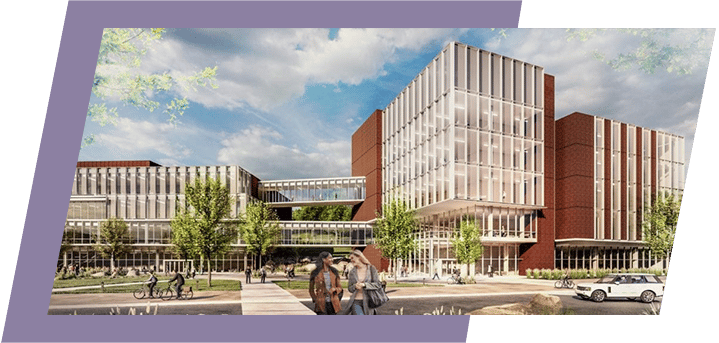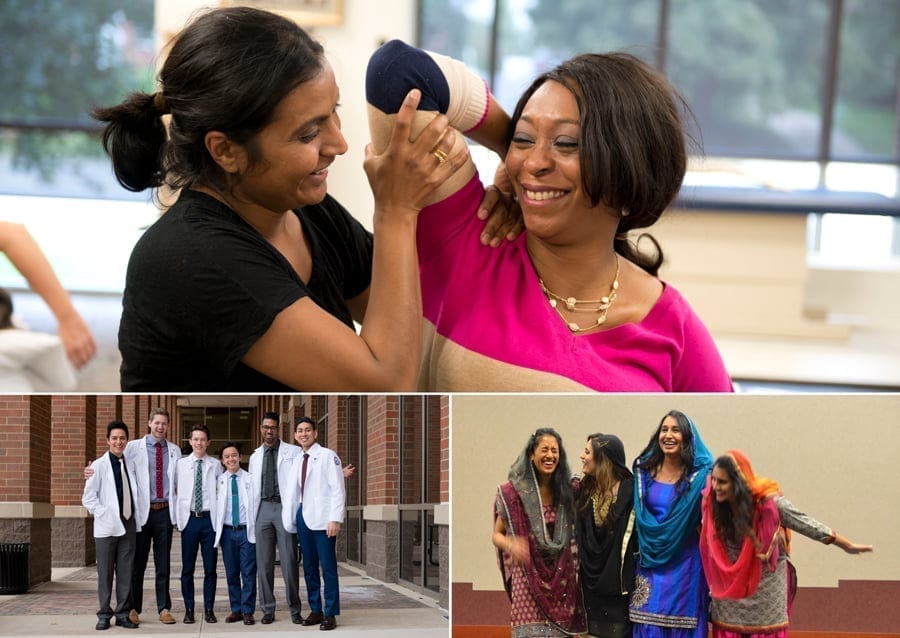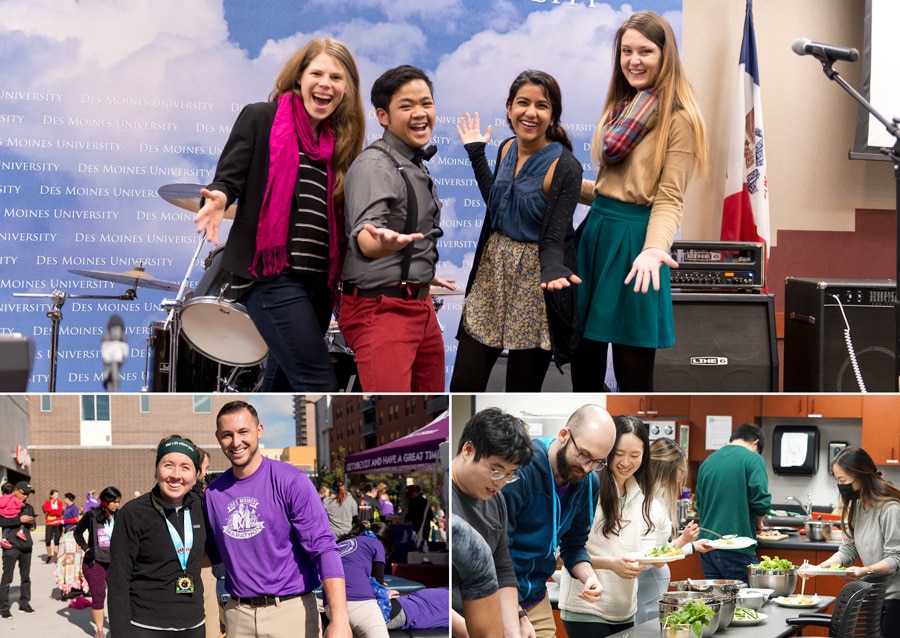Seeking answers to life’s most challenging medical questions
Get Ready To Find Solutions With a Master’s in Biomedical Sciences
Biomedical scientists are on the front lines, every day, searching for cures and treatments to some of the world’s most devastating diseases and infections.
Through the master’s in biomedical sciences program at Des Moines University, you’ll gain the expertise to change lives through your own research. Our 22-24 month graduate degree program will deepen your understanding of human diseases and immunology, as well as give you the opportunities to investigate the mechanisms of health and disease.
Whether you are going to pursue a medical degree or a career in research or academia, DMU’s biomedical science master’s program gives you the necessary skills and knowledge—as well as leadership expertise—to succeed in your professional aspirations.

The Future of Health Care Education is Here
Discover the new home of Des Moines University Medicine and Health Sciences.
Quick Facts
Quick Facts
90%
graduation rate for biomedical science master’s program students
2
years to complete DMU’s master’s in biomedical sciences program
8:1
Graduate student to faculty ratio
Biomedical Sciences Master’s Degree Program Highlights
DMU’s master’s in biomedical sciences program prepares you for a career in investigating life’s greatest medical questions. When you pursue a biomedical science’s master’s degree, you can expect to:
-
Take part in cutting-edge research
Our master’s of biomedical science professors are knowledgeable educators who are strongly committed to your success. Their biomedical research interests are wide-ranging, including cancer, molecular and cellular pharmacology, neuroscience and more. You will have a variety of opportunities to work alongside them in faculty labs as they generate new knowledge and solutions to create a healthier world.
You will also tackle your own unique, hypothesis-driven research project to complete your DMU biomedical sciences master’s degree. This experience will help you become proficient in a variety of lab techniques and skills. For example, you could master tissue isolation and analysis in small animal models; primary cell isolation, culture, manipulation, transfection and transduction; and cell and tissue imaging, microbial culture and propagation.
-
Receive personalized career advising
At DMU, you will have an assigned faculty advisor within the biomedical science master’s program to mentor and guide you through graduate school. Your advisor will help you build a curriculum vitae, develop professionally with mock interviews and other career prep exercises, and navigate your graduate research seminar.
-
Learn in small graduate-level courses
As a graduate student in DMU’s master’s in biomedical sciences degree program, you’ll benefit from small class sizes. We have an 8:1 student-to-faculty ratio within the master of science in biomedical sciences. This means you will learn from faculty experts who will be more accessible to answer questions about a recent classroom discussion, current research pursuits or your career aspirations. You’ll receive the personal attention and professional guidance that prepares you for a successful biomedical science career.
What can you do with a biomedical science's master's degree?
Biomedical sciences are at the heart of medical breakthroughs in health care, from treating diseases and illnesses to understanding stress and anxiety. Our master’s of biomedical sciences degree program prepares you to address scientific problems that relate to the improvement of human health. While you might choose to pursue a terminal degree or advanced training, our MSBS degree can help you build a career in consulting, education or scientific research.
Biomedical Sciences Careers
Our M.S.B.S. science graduates pursue:
- Consultant positions in the pharmaceutical, biotechnology or medical toxicology industries
- Research positions in biotechnology, pharmaceutical companies or government laboratories
- Teaching or research positions in an academic setting
Meet your master's in biomedical sciences faculty
DMU biomedical sciences graduate faculty members are impactful educators and leading researchers in the field. That’s why our master’s program is well respected in Iowa and around the United States.
What master of biomedical sciences students are saying
“The biomedical sciences master’s program at DMU has helped me to succeed in ways I never thought I could. I have become a much more confident individual, and I feel that the faculty and staff never cease to make me feel supported in my goals.”
Dakota Nerland, D.O.'22 and M.S.B.S.'21
Explore master of science in biomedical sciences courses
DMU’s two-year, 47-credit-hour biomedical science master’s program blends basic science courses with biochemistry, microbiology, pharmacology, physiology, pathology and other specialized, graduate-level courses. All graduate students in DMU’s master’s in biomedical sciences degree program gain experience in scientific commutations and complete graduate-level courses such as:
- Biochemistry/Molecular Genetics
- Frontiers in Biomedical Research
- Major Organ Physiology
Graduate Programs Related to Biomedical Sciences
Diversity at DMU: Your culture creates ours
Cultural competency is part of the personal and professional development that happens at DMU. Our campus environment is shaped by individuals who bring cultural differences, life experiences and distinct characteristics.


Welcome to campus: See for yourself what we're all about
DMU offers opportunities to get involved in experiences outside the classroom. We are committed to providing a safe and inclusive environment for all our students.
Living in Greater Des Moines: Your new favorite place
Besides being a great place to live and work, the greater Des Moines metro is a vibrant area with communities from all walks of life. Ethnic grocery stores, restaurants and year-round events ensure that there’s always something for everyone.

























